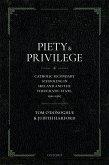Designs on Democracy examines a pivotal period in the formation of the modern profession of architecture in Britain. It shows how architects sought to meet the newly articulated demands of a mass democracy in the wake of the First World War. It does so by providing a vivid picture of architectural culture in interwar London, the Imperial metropolis, drawing on histories of design, practice, professionalism, and representation. Most accounts of this period tend to deal exclusively with the emergence of Modernism; this study takes a different approach, encompassing a much broader perspective on the liberal professional consensus that held sway, including architecture's mainstream and its so-called avant-garde. Readers will encounter a number of unexpected narratives, episodes, and projects: from the British Empire Exhibition at Wembley to the rebuilding of Waterloo Bridge; from the impact of the Great Slump to the passing of the first Architects Registration Act (1931); from Trystan Edwards's radical housing campaigns to the Londoners' League's unorthodox preservationism. Pulling in a range of evidence and sources - periodicals, exhibitions, photographs, and films, alongside architecture - it evokes architectural culture by listening carefully to the tenor of its discourse. Architecture's public realm is thus analysed through sometimes surprising phrases: 'manners' to understand ideals of public propriety, 'vigilance' to explore public proprietorship, 'slump' to contextualise the emergence of public relations, 'machine-craft' to understand the forging of public institutions. The volume spans the excitable discussions about the reconstruction of the profession for a democratic age after WWI, to reconstruction and planning following WWII, providing an ambitious revision of how we can understand twentieth century architecture in Britain.
Dieser Download kann aus rechtlichen Gründen nur mit Rechnungsadresse in A, B, BG, CY, CZ, D, DK, EW, E, FIN, F, GR, HR, H, IRL, I, LT, L, LR, M, NL, PL, P, R, S, SLO, SK ausgeliefert werden.









